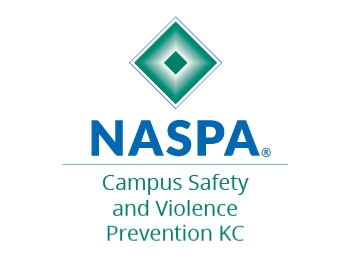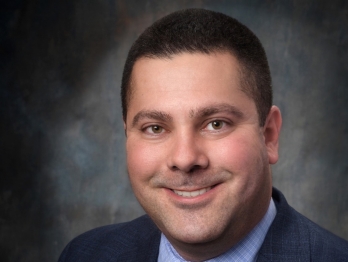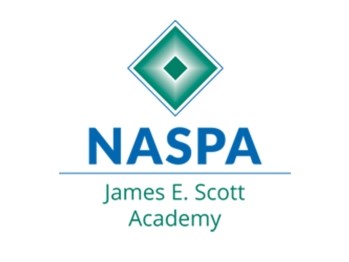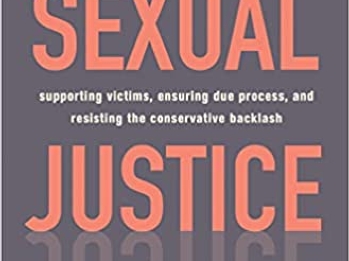
Campus Safety and Violence Prevention
Health, Safety, and Well-being Campus Safety and Violence Prevention
The Campus Safety and Violence Prevention KC is a forum for all higher education administrators responsible for the safety, security, and emotional needs of the campus community and institution. By encouraging member interaction through the sharing of ideas, trends, best practices, resources, and research, the Campus Safety and Violence Prevention KC fosters collaboration, awareness, and support for campus safety.
Welcome
The Campus Safety and Violence Prevention Knowledge Community is eager to help you create a safer, stronger, and more vibrant campus community. We believe campus safety and violence prevention efforts are maximized when student affairs professionals collaborate within and beyond their campus communities. Our goal is to build collaborative leadership, support, understanding, and expertise across the profession.
If you have a story to share, expertise to offer, or energy to spare, we would love to hear from you. Many people on our leadership team came to the KC through their own encounter with campus crisis, tragedy, or violence. You may be looking for personal connections with other student affairs professionals who understand, or you may be eager to share your research interests and professional responsibilities on a broader scale. If you're interested in publishing, presenting, serving on the leadership team, or just sharing a virtual cup of coffee with someone who understands, we would love to connect with you.
We hope these resources support safety on your campus and beyond. Know of great resources not on our list? Please share for inclusion in our virtual library. If you have questions or need additional assistance please feel free to reach out to any member of our leadership team.
Goals
The Campus Safety and Violence Prevention Knowledge Community (CSVPKC) is a cooperative educational forum for all college and university administrators and paraprofessionals charged with meeting the physical safety and security needs of campus infrastructure, the emotional needs of the campus community, and other institutional needs, including the protection of image and promotion of business continuity. Members of this community represent a broad range of functional areas within college student affairs administration, and other realms of campus administration, including academic affairs, facilities management, campus police, health centers, public relations, external affairs, legal affairs, etc.
New membership is encouraged by those with similar interests regardless of discipline, professional preparation, and/or campus roles and responsibilities. By encouraging member interaction through the sharing of ideas and concepts, discussion of trends, best practices, innovative resources and research, the CSKC provides a sustained and organized effort to foster collaboration, awareness, knowledge, and support regarding the management of campus safety.
GOALS
- To foster knowledge and awareness of historical and current incidents, current trends, and effective strategies associated with the management of campus safety.
- To encourage innovative and scholarly research related to campus safety and to encourage significant contributions to the field through the development and presentation of conference programs and workshops.
- To build a support network of professional colleagues and to develop and share a comprehensive database of valuable resources relevant to all areas of our work with all elements of campus safety.
- To offer assistance and support to our colleagues in the preparation for and response to campus safety issues as well as to provide guidance and feedback on protocols prior to and following campus safety-related activities and incidents.
- To build communicative and collaborative partnerships with our administrative colleagues within the field of student affairs and beyond including professionals from external agencies such as emergency management, fire, police, counseling, public health, emergency medicine, etc.
- To sponsor an annual pre-conference program related to campus safety management and its functions within college student affairs.
- To create and highlight innovative approaches to campus safety management and to develop and promote best practices and standards related to management protocol, including assessment and evaluation.
Complete Your Profile
Login and update your profile.
Get Connected
The CSVP KC meets the second Wednesday of each month at 3:00 p.m. EST. Our meetings are open to all, and we would love to see you drop in from time to time. Reach out to the Chair for access information.
Currently, the CSVP KC has the following open leadership positions:
+ Regions I, II, III, IV-East, IV-West, V
+ Research Coordinator
+ Outreach Coordinator
+ Virtual Learning and Engagement Coordinator
Please contact the Chair or review postings on Volunteer Central for application instructions. Have an interest not reflected in these opportunities? Please reach out. We are eager to hear your ideas and open to creating new leadership roles.
Be sure to check out our social media outlets and blog posts for the most updated information on KC opportunities.
Partnerships

Campus Safety
Campus Safety has partnered with the CSVP KC to create a Content Hub for sharing ideas, trends, best practices, resources, and research. We hope these resources support safety on your campus and beyond.
Since 1993, Campus Safety has been the brand that school, university, and healthcare facility protection professionals know and trust. CampusSafetyMagazine.com exclusively serves police chiefs, security directors, IT personnel, emergency managers, facilities directors, risk management professionals and executive administrators responsible for the public safety, security and emergency management of educational and healthcare campuses in North America.
The Campus Safety Conferences are 2 1/2 day, intensive conferences that bring together security, public safety, emergency management, administration, facilities, business, and IT professionals responsible for protecting K-12 and Higher Education campuses and districts. For more information, visit www.campussafetyconference.com.
Recent Blogs
Leadership Team
Knowledge Community leaders are NASPA volunteers who have generously devoted their time to their Knowledge Community. Chairs are elected by the Knowledge Community members while Regional representatives are selected from within the Region. Additional roles are selected by the Knowledge Community.







